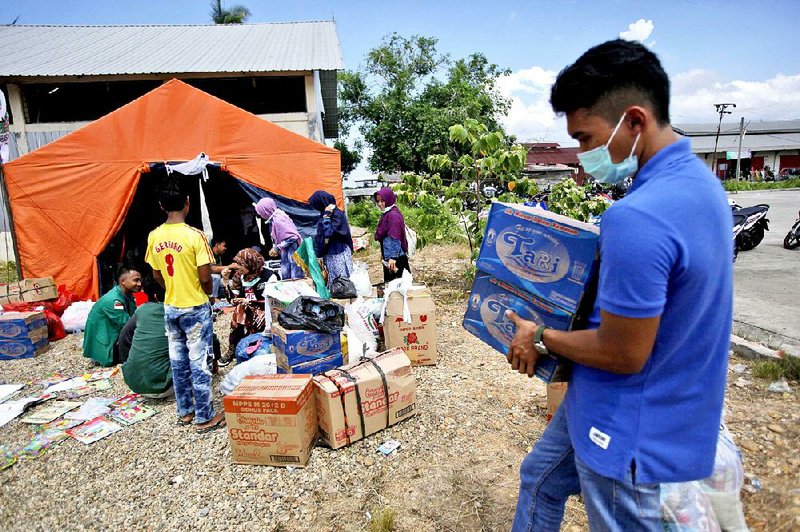LONDON -- The European Union on Monday approved plans to use military force to take on those who are smuggling people on crowded boats in the Mediterranean, significantly escalating Europe's response to a crisis that has left at least 1,800 people dead this year.
The decision allows European governments to move ahead with plans for a naval operation that has been taking shape for weeks. Officials say the operation is crucial to confront the tide of smuggler vessels ferrying people from North Africa to Europe.
The aim of the mission is to destroy such vessels before they take passengers. But that will require authorization from the U.N. Security Council, which began to consider the matter after EU officials made their case in New York last week.
Approval isn't certain, especially after Russian officials expressed misgivings about a mission that could involve European warships operating in Libyan territorial waters.
Libya is divided, with rival governments in the eastern and western parts of the country. Much of the smuggling traffic originates in the west, where Islamist militias have shown hostility toward proposals for European operations in the areas they control. The internationally recognized government in the east has said it has its own reservations about the idea.
Nonetheless, EU foreign policy chief Federica Mogherini expressed optimism Monday that the bloc's decision to approve the operation will lead the United Nations to take action.
"I think that after we take the decision today, it is more likely for the Security Council to take a resolution," Mogherini said Monday before the EU had finished its work.
After European foreign and defense ministers approved the operation, Mogherini said she was hopeful that Europe could win cooperation from Libyan authorities on both sides of the country. "We are looking for partnership in this," she said.
EU officials have said the operation will not involve European "boots on the ground," but Mogherini said Monday that Europe will ask for Libyan cooperation in combating smuggler networks both on land and at sea.
As the negotiations continue, Europe will proceed with the first phase of the operation, which includes gathering intelligence and lining up the ships, planes and other military resources likely to be needed for any serious attempt to thwart the smugglers. The EU has no military force, so member states will be asked to contribute, a process that has delayed previous operations.
Mogherini said the operation could formally begin within weeks, and it will be commanded by naval officers in Rome. The cost is estimated at $13 million for the first two months, with the expectation that it will continue for at least a year.
NATO Secretary-General Jens Stoltenberg said Monday that the alliance stands "ready to help if there is a request." Stoltenberg said the crisis has become a security issue because would-be terrorists could smuggle themselves into Europe with the travelers. "One of the problems is that there might be foreign fighters, there might be terrorists, also trying to hide, to blend in," he said.
Europe has been inundated this year with about 50,000 travelers who have made the perilous journey from the North African coast to Italy, Greece, Malta and other countries along the EU's southern periphery. About 1,800 have died while trying to cross -- about 20 times the number who had died at the same time last year. A combination of conflict, poverty and repression is driving the exodus.
The deaths of at least 850 people when a boat sank last month spurred Europe to take emergency measures to improve its response to the crisis.
Late last month, Europe tripled funding for a maritime patrol mission. A search-and-rescue mission that had been credited with saving more than 100,000 lives was discontinued at the end of last year.
The European Commission, the EU's executive body, has pushed for a new system for distributing travelers that would more evenly divide the burden across the bloc's 28 members. But a number of nations, including Britain and France, have objected to the idea.
Europe's focus on a military response to the smuggling networks has been criticized by rights groups, which have argued that destroying ships will do nothing to ease the surging demand for illicit entry to Europe -- and may force travelers to take even greater risks. Travelers could also become unintended victims of any attempts to destroy smuggling vessels, the groups say.
The International Organization for Migration last week highlighted the "inherent risk that military actions, however laudable, could further endanger migrant lives."
Amnesty International has warned that "the measures could lead to thousands of migrants and refugees being trapped in a conflict zone." The group has called for Egypt and Tunisia to open their borders to refugees fleeing abuse and violence in Libya.
A Section on 05/19/2015


